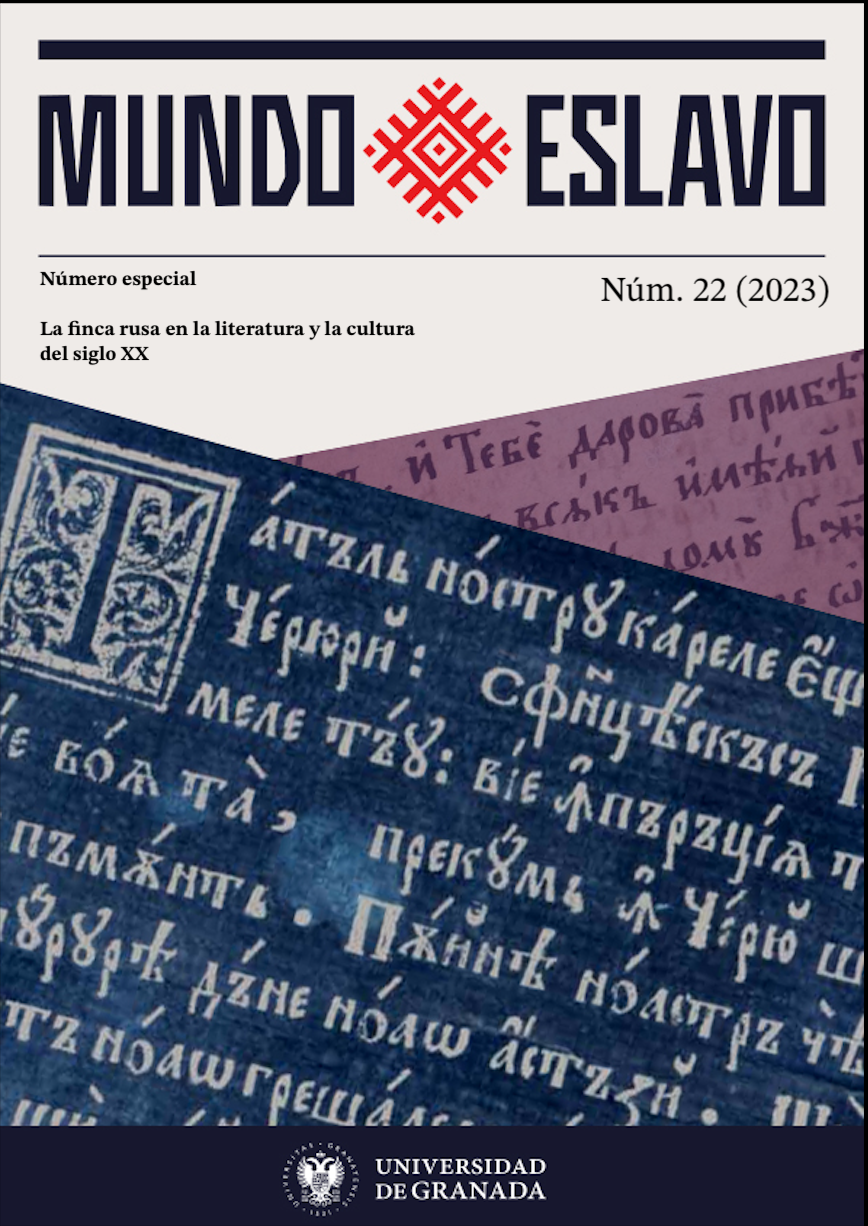Dmitrieva, E.E. (2020). Los castillos literarios de Europa y el “texto de finca” ruso de los finales del Siglo XIX-principios dl siglo XX (1880-1930). Serie «La finca rusa en el contexto mundial», 5. El Instituto Gorki de Literatura Mundial, la Academia d
DOI:
https://doi.org/10.30827/meslav.22.29675Abstract
In the review, the content of the monograph dedicated to various aspects of Russian and European country estate texts, their points of intersection and divergence, is briefly discussed. Structurally, the work consists of several thematically connected essays representing Russian country estate history in a European context, and European history as not only influencing Russia but often marked by Russian presence. One of the outcomes of this work is the discovery of numerous, including unexpected, points of intersection between European and Russian real and literary history associated with country estates.
Downloads
Downloads
Published
How to Cite
Issue
Section
License
Copyright (c) 2023 Mundo Eslavo

This work is licensed under a Creative Commons Attribution-NonCommercial-ShareAlike 4.0 International License.

CC BY-SA: This license allows reusers to distribute, remix, adapt, and build upon the material in any medium or format, so long as attribution is given to the creator. The license allows for commercial use. If you remix, adapt, or build upon the material, you must license the modified material under identical terms.
CC BY-SA includes the following elements:
BY ![]() – Credit must be given to the creator
– Credit must be given to the creator
SA ![]() – Adaptations must be shared under the same terms
– Adaptations must be shared under the same terms
Authors who publish with this journal agree to the following terms:
1. Authors retain copyright and grant the journal right of first publication with the work simultaneously licensed under a Creative Commons Attribution License that allows others to share the work with an acknowledgement of the work's authorship and initial publication in this journal.
2. Authors are able to enter into separate, additional contractual arrangements for the non-exclusive distribution of the journal's published version of the work (e.g., post it to an institutional repository or publish it in a book), with an acknowledgement of its initial publication in this journal.
3. Authors are permitted and encouraged to post their work online (e.g., in institutional repositories or on their website) prior to and during the submission process, as it can lead to productive exchanges, as well as earlier and greater citation of published work (See The Effect of Open Access).













